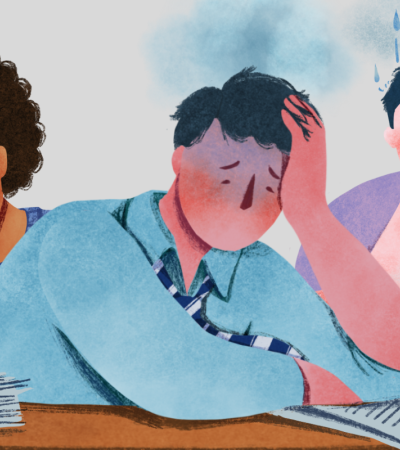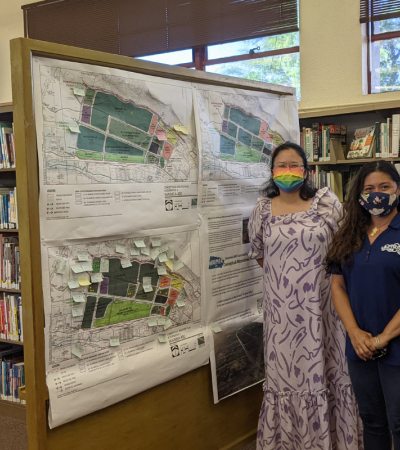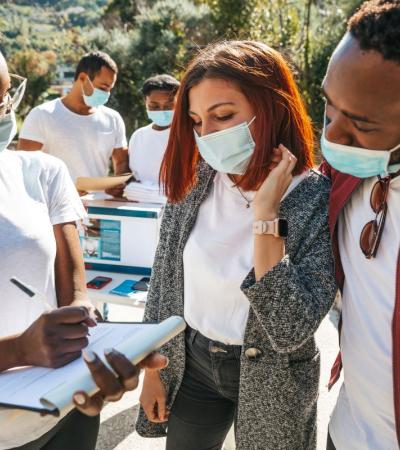Libraries participating in Libraries Transforming Communities (LTC): Focus on Small and Rural Libraries were encouraged to share information about their programming and its outcomes through letters to local elected officials.

A preliminary review of nine such letters suggests that library staff were able to use LTC funding as a hook to build and maintain supportive relationships with these officials.
In this article, we consider three common components of these letters, examining some of the strategies that writers use.
1. Reference ongoing relationships
Most of these letters referred to ongoing relationships with these local officials, using a range of communicative resources. Some grantees noted that they had communicated when the grant was first announced, while others highlighted that these politicians had been long-time supporters or even participants in library programs.
For example, some letter writers referred to engagements the politicians had attended: “We held two Community Partner workshops/conversations, which we were honored to have [politician] attend the first of two.”
They also mentioned prior communications with the official (such as “I’d previously shared with you…” ), which framed this letter as a continuation. Some writers used language that presupposed knowledge on the official’s behalf: for example, “I wanted to update you on the outcomes of…” assumes some pre-existing awareness on which the update is based. The tiny phrase “as always” indicates that communication is not taking place in isolation but as part of a larger dialogue between the parties.
What does this accomplish? These strategies explicitly frame communications as turns within a larger dialogue, rather than isolated events. This kind of frame sets the expectation that the parties will remain in communication, opening the door for further relationship-building.
2. Express gratitude
Six of the ten letters contained expressions of gratitude. They typically referred to the politicians’ work in the community or specifically with the library. Without exception, they occurred at the end of the letter. While they varied in their specificity, they all followed a general formula:
- As always, thank you for the work that you do in [community] and the surrounding areas, and we look forward to sharing more good news with you as things continue to progress in an even brighter direction.
- Thank you for all you do for [library] and [community].
- Thank you for your time and for your support of the public libraries in the state of [state].
- Thank you for your continuing support.
- Thank you for all that you do for [community] and [library].
- Thank you both for all you do for our community and your continued support.
What does this accomplish? Ending with expressions of gratitude reinforces ongoing relationships with these politicians.
3. Ask for something
Meanwhile, five of the ten letters also included at least one ask. Most asks occurred at or near the end of a letter, but one library opened with their ask, and one ask was embedded in the body of a letter.
Some asks were library-specific. For example, the director of a library in New York asked a state senator to share constituent concerns that might make good topics for community conversations. The assistant director of Laurel Public Library asked both a state senator and representative to share partnership information with other organizations.
In other cases, library staff wanted local politicians to act on concerns or goals discussed during the community conversations. A staff member at a Wisconsin library wanted a state representative to look into an app that supports caregivers; volunteers at Bull Shoals Library hoped the mayor and city council would consider adding a volunteer spotlight to meeting agendas; and a staff member at Cambridge (Iowa) Memorial Library wanted members of state government to support mental health funding.
What does this accomplish? Constituents – whether individuals or institutions – are entitled to ask representatives for financial and policy support. Combining an ask with the claims to the relationship described above increases the odds of success.
About the letters
The nine letters we reviewed were addressed to a range of stakeholders: seven state-level (State Assembly Members, Representatives, or Senators, and two were local (Mayors and Councils). We did not have this information for one letter.
What does this mean for your library?
While these letters were written as part of a grant opportunity, all libraries - and their communities - can benefit from developing relationships with local officials. Here are some ideas to get you started! First, feel free to take a look at the email template the LTC libraries were given.
- When a relationship already exists, be sure to mention it. If it’s new outreach, mention some areas of common ground. For example, phrases like “As you are aware” or “Given your work on…” can position community concerns as shared knowledge.
- Say “thank you” to the person for specific things they are already doing that affect your library or community.
- Make your ask! This should be something feasible, specific, and as detailed as possible. Help them help you.
Knology is a nonprofit research organization that produces practical social science for a better world. The organization pursues this goal to help professionals in a variety of sectors build inclusive, informed, and cooperative societies that can thrive together with the natural systems on which we all depend. As a transdisciplinary collective of over 30 social scientists, writers and educators, the organization's work process is built on equity, transparency and deliberation.




